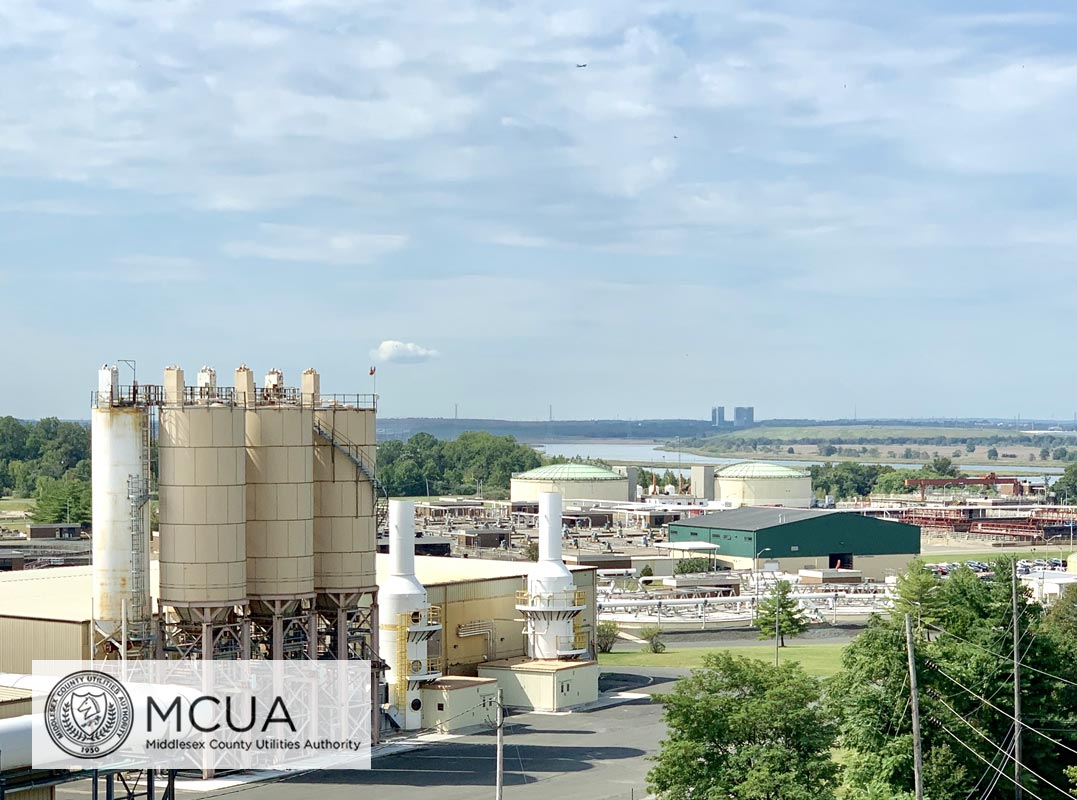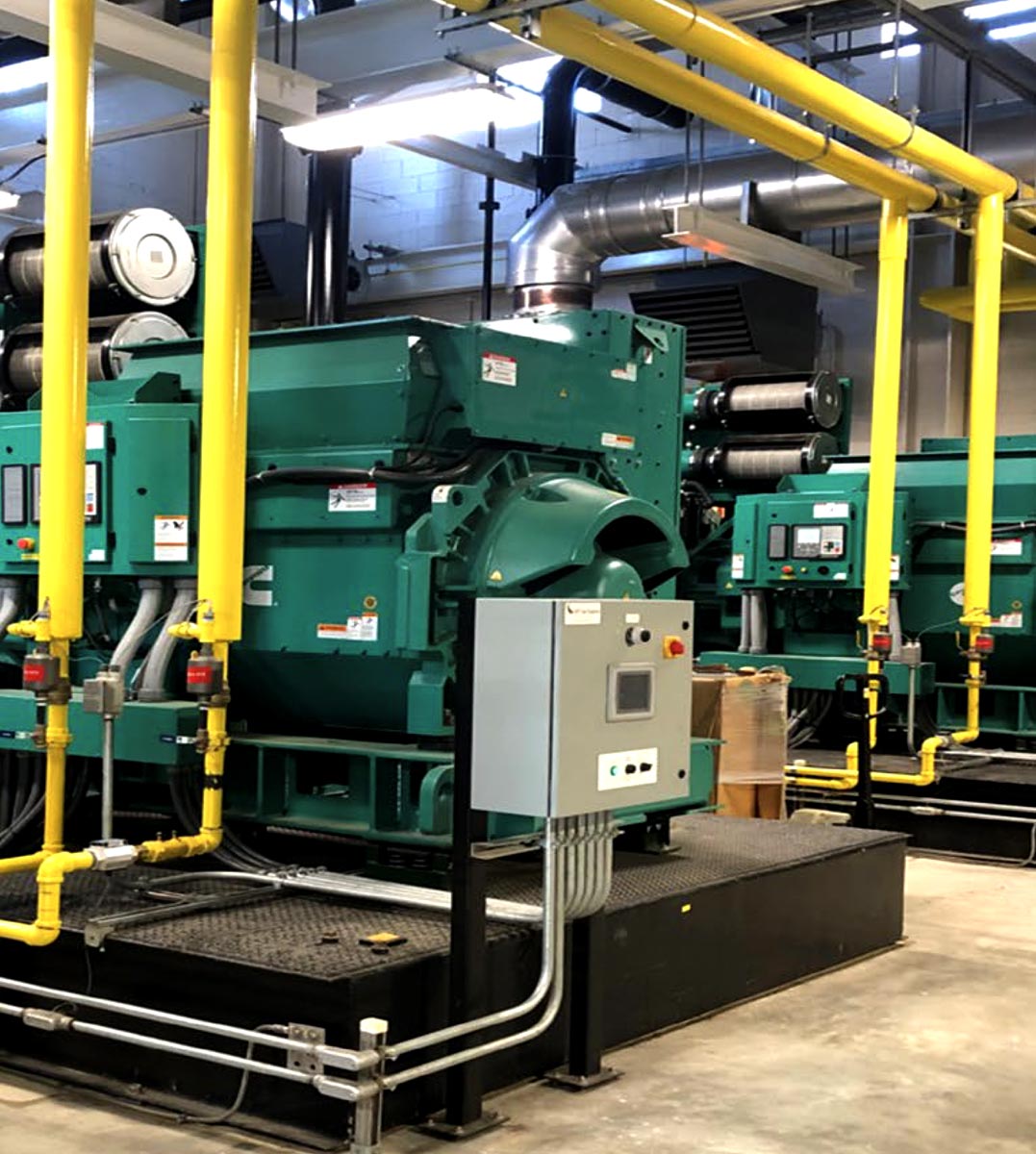
Sayreville Wastewater Pumping Station
Microgrid For Water & Wastewater Treatment With “Storm Anticipation Mode” at Sayreville Wastewater Pumping Station
PROJECT INFORMATION:
Engineer of Record for multi-fuel distributed generation microgrid able to disconnect from gird ahead of storm events. The design met N+1 criteria including three 2.5 MW diesel engine generators and one 2.0 MW natural gas engine generator.
Key electrical systems upgrades included the 34.5kV on-site main substation, main 4.16kV switchgear, 5kV paralleling switchgear, digital master control system and 480V switchboards.
- SECTOR: Water & Wastewater
- LOCATION: Sayreville, NJ
- CONSTRUCTION COST: $92 Million
- PRACTICE:
- Power & Infrastructure
- SERVICES:
- Engineer of Record
- Microgrid
- Wastewater Resiliency
- Commissioning
READY TO START A PROJECT?
Do you have an upcoming project you would like to discuss in detail?
This site is protected by reCAPTCHA.
The Google Privacy Policy and Terms of Service apply.
HOW WE DID THIS:
Ready to start a conversation with someone who has a background on this project?


PROJECT BACKGROUND:
During Hurricane Sandy, the 80 MGD Sayreville Pumping Station was taken off-line for an extended period resulting in the disruption of services and the release of millions of gallons of untreated wastewater into Raritan Bay.
Concord served as Engineer of Record for designing an on-site emergency power system and Microgrid, as part of the Middlesex County Utilities Authority (MCUA) recovery team charged with restoring the pumping station operations and preventing future disruptions in service. Concord provided full engineering support for interconnecting the facility with the utility 34.5kV grid. Unique to our approach to resiliency was designing the pumping station as a Microgrid capable of disconnecting from the grid in “storm anticipation mode.”

THE CHALLENGE:
- Design a resilient on-site power system providing extended service during severe and long-term grid interruption.
- Maintain critical pumping services without disruption due to storms or prolonged grid outage.
- Meet and exceed tight timeline to deliver the project.

THE SOLUTION:
- Preempting storm events, the Microgrid control system was designed to disconnect from the grid in anticipation of a storm caused grid outage. This insures no disruption of pumping station service.
- To support the tight schedule, a design assist approach was implemented with Concord providing field engineering expertise to reduce time for design coordination with contractors.
- Providing fuel diversity, the power generation design consisted of 3 x 2.5 MW diesel engines with on-site bulk fuel storage coupled with a 2 MW natural gas engine.


THE RESULT:
- Given the mission critical nature of the project, the design assist effort combined with field engineering services complimented the overall effort to deliver a hardened resilient pumping station to Middlesex County Utilities Authorities in a very short time period.
- The resilient pumping station ensures service to the local community and protection of Raritan Bay from storm induced discharges of untreated effluent.
- The “storm anticipation” microgrid affords the MCUA operations team continuous operation of a critical facility affording them time and resources devoted to maintaining wider services.
MORE ABOUT THIS PROJECT:
Water and Wastewater Authorities can benefit from microgrids that improve energy resiliency, provide tangible economic benefit and underpin sustainability goals. The right microgrid that offers resiliency and renewable energy can enhance energy reliability, complement critical operations, mitigate risk and contribute to sustainability. Authorities may even use these resources in demand and curtailment response programs to create additional revenue streams. But a microgrid needs to be designed for specific mission driven purposes with an eye toward both function and economic benefit - the economic benefits often multiply with the level of functionality designed into the microgrid.
Concord Engineering is industry known for our knowledge advancing market penetration and understanding of the benefits, technical, regulatory, and cost challenges for projects of any size. Refer to Whitepaper “Microgrids for Water & Wastewater Treatment” for more detailed information.
